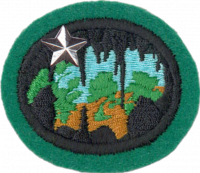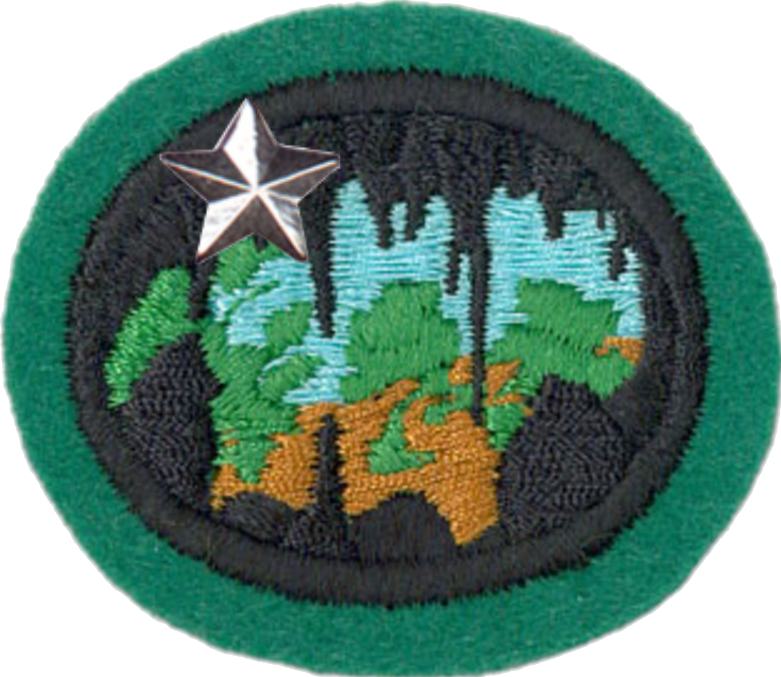AY Honors/Caving - Advanced/Answer Key
1
For tips and instruction see Caving.
2
Maps of your local area may be bought at an outdoor sporting goods store, and in some cases, at book store. You can also order them from the USGS if the area you want a map of is in the United States. The USGS also provides free downloads of digitally scanned topographical maps.
(Never post exact cave locations, (i.e. GPS coordinates) or directions to caves in public places, such as the internet.)
3
This is a very broad question which we will break down into sections.
How caves are formed
What do caves have in common
Types of formations
Effects of water activity
Fossils
Life forms
4
Rappelling Equipment
Learning to Use Rappelling Equipment
Joining a club or going with experienced cavers is going to be the best idea, although reading up on theory is a great idea.
Planning and taking your trip
5
"Take nothing but pictures, leave nothing but footprints" is pretty self-explanatory. It means you do not disturb nature while you are out enjoying it. If you see a pretty rock, leave it there for someone else to enjoy. If you eat a piece of candy on the trail, don't toss the wrapper — take it with you.
There are a few exception to both these rules. If you see trash, by all means, take it. Throw it in the trash when you get to a proper trash receptacle. Also be aware that footprints are not always harmless. Many tundra plants that take years to grow can be destroyed by a single footprint. Stay on the trail.
One of the most important ways people leave their mark on the land is by building a campfire. For "no trace" camping, bring a camp stove. Unfortunately, the campfire is one of the primary attractions for many people, so it is not easy to follow this advice. If your campsite has a fire ring or an existing fire pit, use that. If it does not and you must have a campfire, lay a small tarp on the ground and cover it with six to eight inches of mineral sand. Mineral sand is sand containing no organic material, and can be found on a beach or where a large tree has fallen over and raised a rootwad. The sand must be piled deep so the heat does not affect the tarp beneath. Stop putting new fuel on the fire well before you are ready to put it out, and push in the ends of sticks that have not yet burned. Allow them to burn down to white ash. When you are ready to leave, douse the fire well, and spread the ashes over a wide area. Return the sand to the place where you found it and pack up your tarp.
"Take nothing but pictures, leave nothing but footprints" is a good summary of the more common Leave No Trace 7 Principles. Memorize and practice these:
- Plan ahead and prepare.
- Travel and camp on durable surfaces.
- Dispose of waste properly.
- Leave what you find.
- Minimize campfire impacts (be careful with fire).
- Respect wildlife.
- Be considerate of other visitors.
© 1999 by the Leave No Trace Center for Outdoor Ethics
6
- A good cave log will contain
- Cave Name
- Type of Cave (Horizontal or Vertical)
- Group Size
- Hours Spent in the Cave
- Comments about the Cave
The ten hours required in the Caving Honor are a good start, now get underground again.
7
Teaching the Caving Honor would be a great way to fulfill this requirement. That will also earn you an instructor diamond for your Caving Honor patch.
8
Develop a good relationship by respecting his cave and his property. Also try to give them a gift each time you go to their cave, if you give them the same thing each time, they will remember you better and give you more access to their cave.


